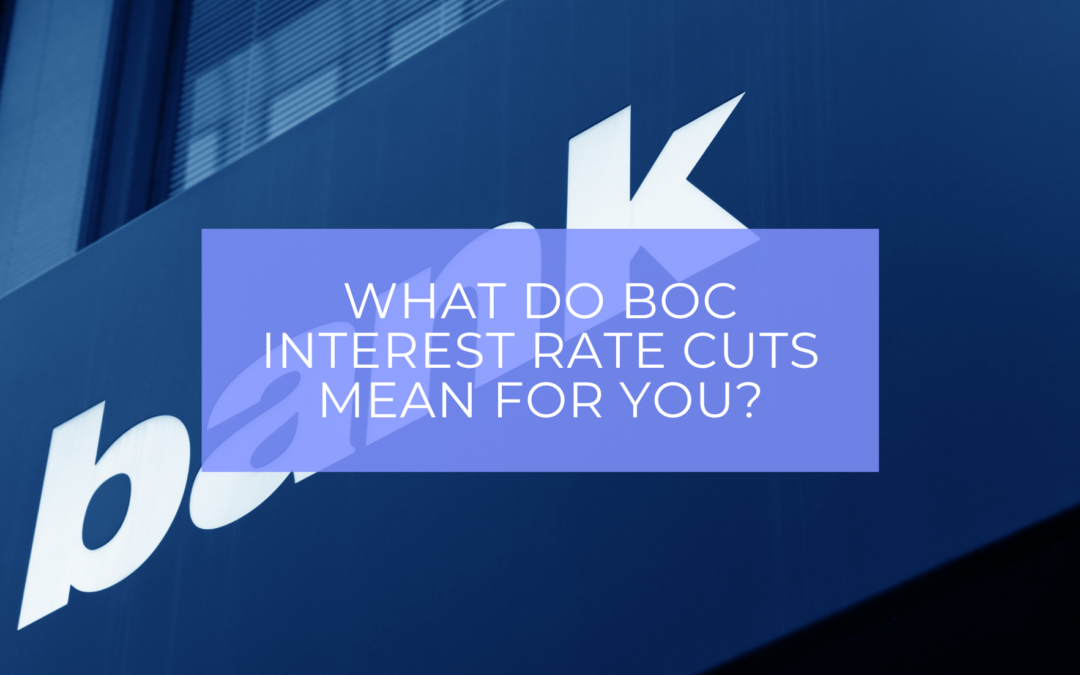The Bank of Canada’s recent decision to cut its benchmark interest rate by 0.5% on October 23 has made waves across the country. For many Canadians, interest rate decisions like this directly impact financial choices, especially when it comes to housing. Whether you’re an existing mortgage holder or a hopeful buyer, understanding how these rate changes affect you can help with planning your finances and making confident decisions.

Impact on Existing Mortgage Holders
For current homeowners with variable-rate mortgages, the Bank of Canada’s rate cut typically brings immediate financial relief. When interest rates drop, so does the interest portion of a variable-rate mortgage, leading to lower monthly payments or a faster pay-down of the loan balance depending on how your variable rate mortgage is set up.
This reduction can ease financial strain, providing more breathing room in monthly budgets or an opportunity to make extra payments on the principal. However, fixed-rate mortgage holders won’t see an immediate change but might benefit when they renew, as new fixed rates may reflect the lower benchmark.
Changes for New Mortgage Applicants
If you’re applying for a new mortgage, the Bank of Canada’s rate reduction can also work in your favour. Lower rates make mortgages more affordable, often allowing buyers to qualify for larger loans than they could when rates were higher. For those with fixed-rate mortgage plans, these lower rates mean locking in a lower interest cost over the term, creating greater predictability in monthly expenses. However, it’s important to keep in mind that the qualifying rate, or “stress test,” may still be higher than the offered rate to ensure borrowers can manage potential future rate hikes.

Broader Financial Implications
Beyond mortgages, the Bank of Canada’s interest rate decisions influence many financial aspects of Canadians’ lives, from credit cards to lines of credit. Lower rates reduce the cost of borrowing overall, which can be beneficial for individuals with variable-rate debt like personal lines of credit. However, lower rates can also influence the housing market, potentially increasing demand for real estate as borrowing becomes more affordable.
This increased demand can lead to rising property prices, especially in desirable areas. For those considering real estate investments or home purchases, understanding market trends in relation to interest rate changes is key to making smart financial decisions.
Navigating interest rate changes requires careful consideration of how they affect both current financial commitments and future plans. For existing mortgage holders, lower rates may offer significant savings, while prospective buyers may find this an opportune time to enter the market. At Quinte Living, our team is here to help you understand these changes and make informed decisions. Reach out to us today for guidance on your real estate journey or to connect with one of our trusted financing professionals who can provide personalized insights based on your unique situation.
Stay in the loop!
We promise not to spam your inbox. 😊
Receive a once-a-month email with a real estate market update for the Quinte area and Prince Edward County, helpful tips for homeowners and buyers, and community insights like events and municipal decisions that impact property. Though, our readers tell us the best part is Doggo of the Month.
